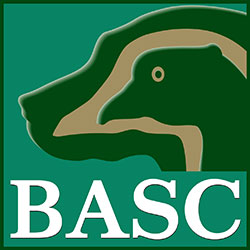 Figures released today show that in the two years since the gamebird sector rolled out its voluntary campaign to reduce antibiotics, overall use has fallen by 51%, with antibiotics incorporated in gamebird feed slashed by 70%.
Figures released today show that in the two years since the gamebird sector rolled out its voluntary campaign to reduce antibiotics, overall use has fallen by 51%, with antibiotics incorporated in gamebird feed slashed by 70%.
The figures, announced by The Game Farmers’ Association (GFA), have been calculated in collaboration with Veterinary Medicines Directorate (VMD) and are based on prescriptions written by gamebird vets throughout the UK. [Note: All antibiotic use must be prescribed by a vet. Gamebirds are reared in the spring and released into the countryside in the summer, which is why the 2018 results are already available].
A spokesman for the GFA said, “A further year of good engagement by the gamebird sector in 2018 has brought overall usage of antibiotics down by another 24% this year. Together with last year’s substantial fall, this confirms that the industry has halved antibiotic use since our voluntary campaign was rolled out in 2016.”
Detailed analysis of the 2018 result shows that in-feed use fell by 35% this year, whilst use of AB in soluble treatments fell by 10%. The difference reflects a continuing focus on treating actual disease outbreaks rather than feeding medicated rations ‘just in case’, and also the need to treat some late disease outbreaks associated with the excessively hot summer.
Professor Peter Borriello, Chief Executive Officer of the VMD, said: “Reducing antibiotic use in gamebirds by a further 24% in 2018 and 51% over the last two years is an impressive achievement. The Game Farmers Association should be congratulated for mobilising the industry, as should the game farmers, gamekeepers and their vets for their commitment in bringing down antibiotic use. We encourage everyone to continue this good work.”
Chris Lloyd, Secretary General of Responsible Use of Medicines in Agriculture Alliance (RUMA) , which is coordinating work across all livestock sectors to drive responsible use of antibiotics in the face of worldwide concerns about antimicrobial resistance, said: “We welcome these hugely encouraging results, not least as the continuing falls in antibiotic use in gamebirds have been achieved through a real focus on good management and improved biosecurity.”
Glynn Evans, BASC’s head of game and deer management, said: “These are encouraging results due to the whole sector working together. It is important that we continue to keep up the momentum. This year’s performance is another significant step in the campaign to continue reducing antibiotic use.”
The lessons learned from this year’s gamebird rearing season will be collated during November at a meeting of specialist vets and representatives of the game feed trade, hosted by the Game Farmers’ Association. Advice arising from that meeting will be provided free of charge to all game rearers in pursuit of further antibiotic reductions next year.